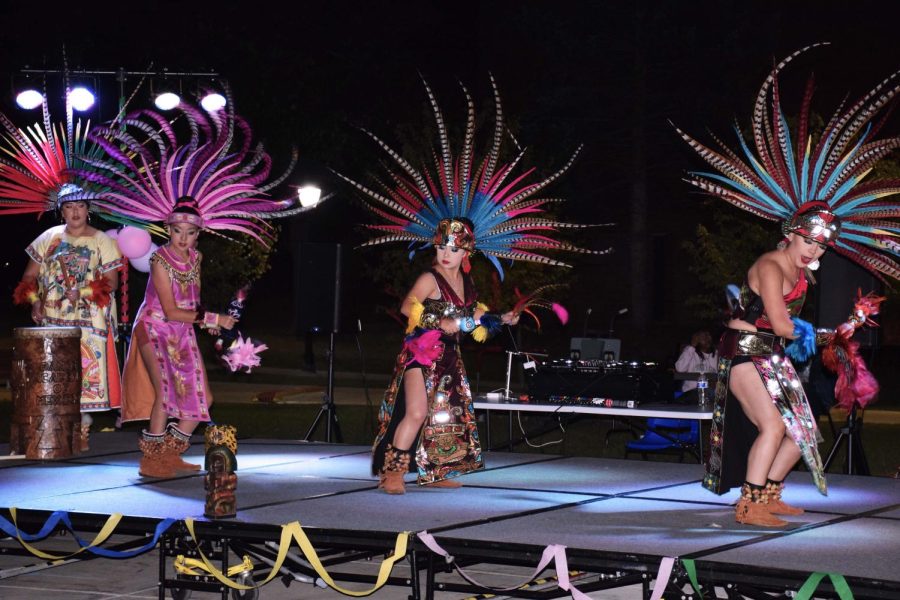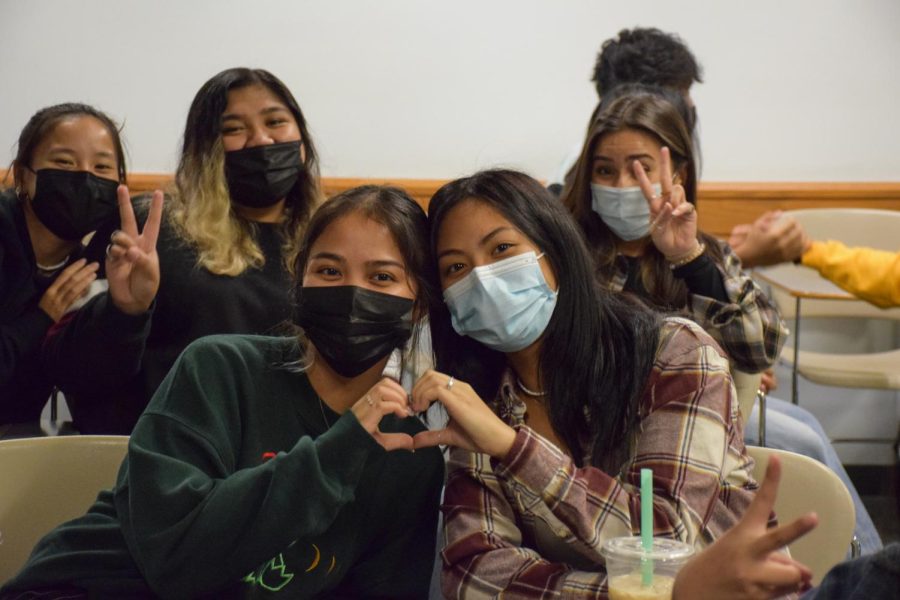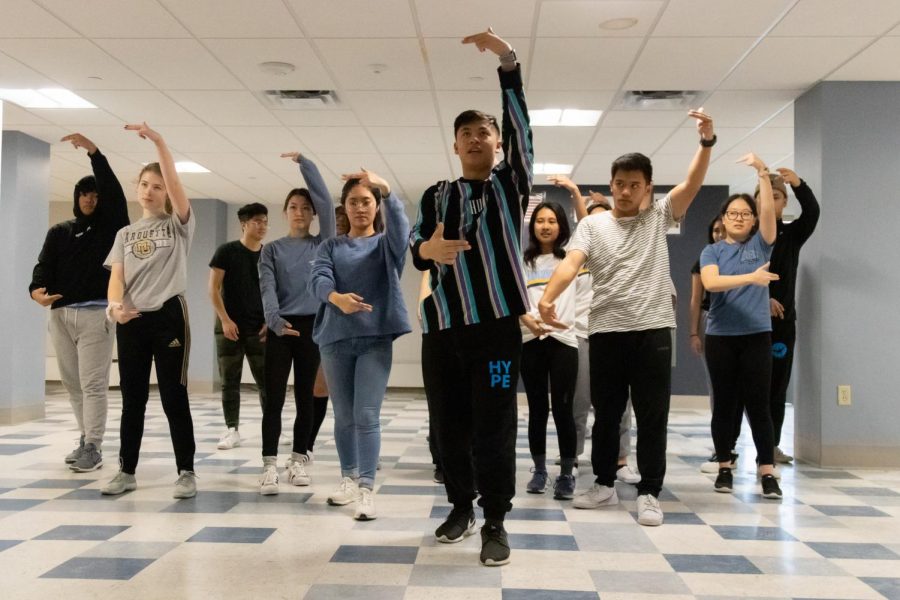While walking through the 107 acres that make up Marquette University’s campus, it may be easy to spot some patterns in ethnic, cultural and demographic backgrounds that often dominate the university. However, if you look a little closer, many students offer diverse, multicultural perspectives that enhance students’ education and life experiences.
As a Hmong American born and raised in Milwaukee, Rachel Yang, a senior in the College of Arts & Sciences, says it can be hard to find her own identity, especially at predominantly white institutions and neighborhoods in the United States.
“Even though I’m from a Hmong family, and even though we have Hmong traditions, it’s very much like ‘But you go to a very white school and you don’t speak (Hmong),’” Yang says.
While Yang can speak and understand Hmong, she says she doesn’t use it every day, as her parents can understand English.
The Hmong people are an ethnic group that mainly live in southern China, Vietnam, Laos, Thailand and Myanmar.
“When I speak in Hmong I have an English accent,” Yang says. “People would be like ‘Oh you don’t even sound like Hmong, you speak very American.’ But then when I was at school I obviously look Asian, so it’s very hard to see where I fit.”
And being Christian is just another aspect that sometimes sets her apart.
“I feel like I can’t fit into both, but at the same time, I think our culture is also evolving to be more Americanized as well,” she says. “It’s different times now.”
While her family still celebrates the Hmong new year and wears traditional Hmong clothes, they don’t participate in Hu Plig, a traditional Shaman blessing in the Hmong culture.
“We do have different celebrations and events, but it is a little bit different because our Christian practices are different from the Hmong Shaman practices,” Yang says.
After transferring to Marquette in her sophomore year, Yang says it was hard to find groups where she could fit in, as there is not a big Hmong population at Marquette. However, Yang says she feels comfortable at Marquette because she has surrounded herself with a diverse friend group and support system.
“My friend group is amazing, and I think that because I get so much exposure to different cultures, I’m able to feel more comfortable,” Yang says. “But if it was someone new, who was maybe a little more introverted, which is totally normal too, I feel like it could be harder to feel like you really belong.”
Celeste Lagman, a senior in the College of Arts & Sciences, was also born and raised with a more Americanized version of her Filipino culture.
Lagman says she decided to come to Marquette because she wanted to explore the city and liked the smaller, more individualized academic setting.
“When I got to Marquette, I kind of was used to seeing a majority of white people in my classes,” she says. “So it didn’t surprise me at first, but I can imagine someone who came from a very diverse high school or background and coming here would be such a big difference.”
Lagman is the secretary and treasurer of Delta Xi Phi, the multicultural sorority on campus.
Delta Xi Phi raises multicultural awareness on campus by working with other diversity organizations. They also work to promote the advancement of women throughout their education and studies, connecting with people from all backgrounds.
She says she originally joined this organization to meet and interact with more students from different backgrounds.
“I’m really glad I joined because I was able to learn about the different multicultural organizations on campus, like some of the Latino and Latina sororities and fraternities,” she says. “I really connected with people from those groups … I just like learning about different cultures and being able to participate in that.”
Sessie Agbley, a coordinator in the Center for Community Service and a graduate student in the College of Communication at Marquette, is from Ghana, West Africa, but has traveled a lot and has been able to experience cultures in many parts of the world.
After attending the American International School of Mozambique, Agbley came to the United States for college. After graduation, he received an Optional Practical Training visa, allowing him to work within his field of study for an extra year.
Agbley eventually made his way into community service, where he began working with a nonprofit group called Next Generation, an organization that provides academic support and enrichment programs for students kindergarten through high school in the city of Milwaukee.
Next Generation serves predominantly Somali, Somali Bantus and Black American students.
“There’s a lot of beautiful cultural dynamics happening there, and I think that at first, students from Marquette didn’t necessarily know how to navigate that,” Agbley says. “The wealth of information that you get (through service) is so immense and incomparable, and I think for me, having to cultivate that habit has really helped me find myself.”
He says he tries to encourage others at Marquette to immerse themselves in the community through service as well.
“We have this notion, and this is kind biblical in some sense, that ‘the servant is always the greatest,’” he says. “I’m not saying that I’m trying to position myself to be the greatest, but just from that sentence alone it’s like when you’re able to truly serve with humility, you get to really understand.”
Agley also says that growing up in multiple cultures has allowed him to really appreciate and learn from all the cultures.
“I’ve grown up in very international circles, so whiteness has always been within my frame of reference, so the adjustment (to Marquette) wasn’t hard,” Agbley says. “I’ve always had to find myself within the spaces of whiteness.”
As a graduate student at Marquette, however, Agbley says there are also times when he wants to have certain conversations, but there just are not enough people available to have those conversations with him.
Yang also says it is important to show that Marquette is a school that supports diversity.
“Showing that we are open to having those difficult conversations is the first and most powerful thing,” she says. “If you don’t feel comfortable at your school, or where you are from, I feel like you just won’t be happy or won’t feel like you belong, so it’s important for everyone to feel comfortable enough to voice their own opinion.”
This story was written by Skyler Chun. She can be reached at skyler.chun@marquette.edu.




